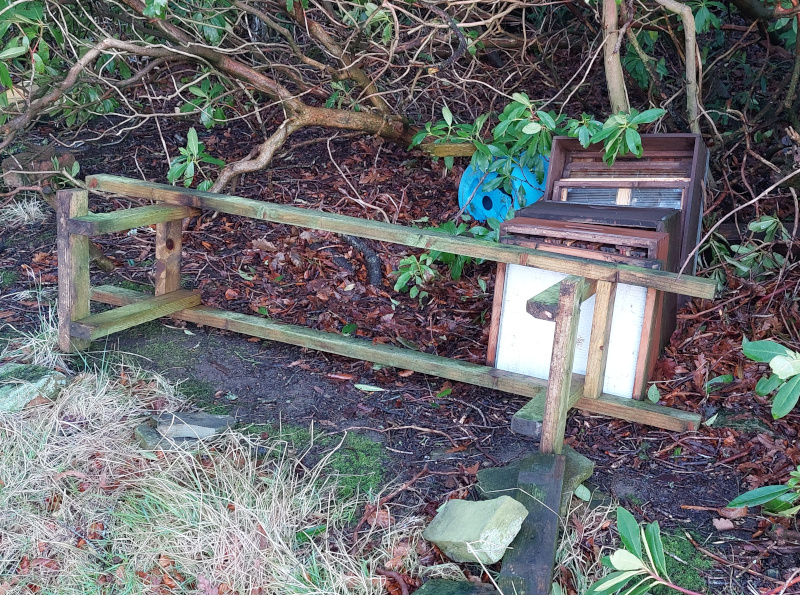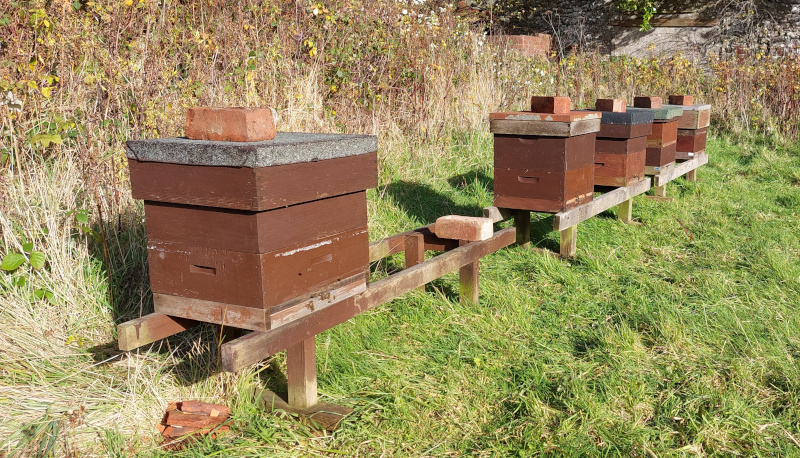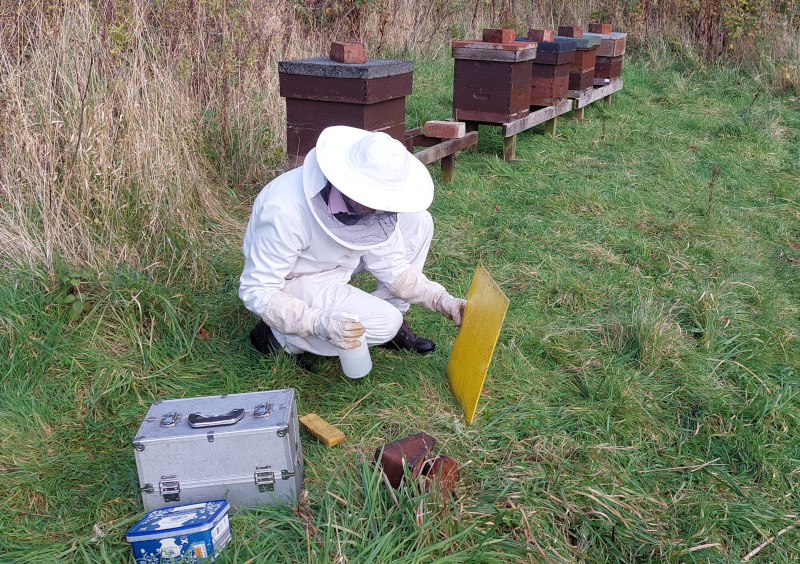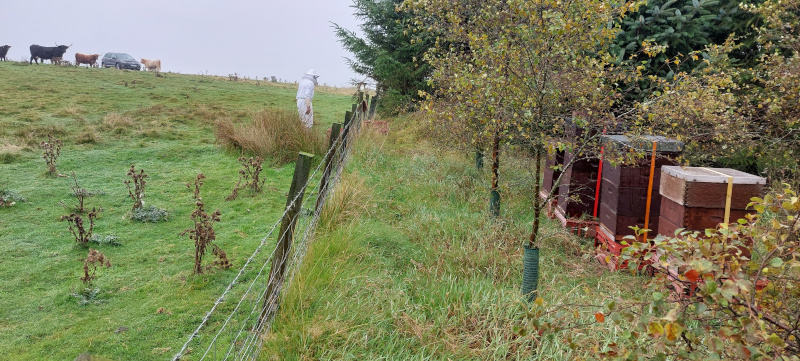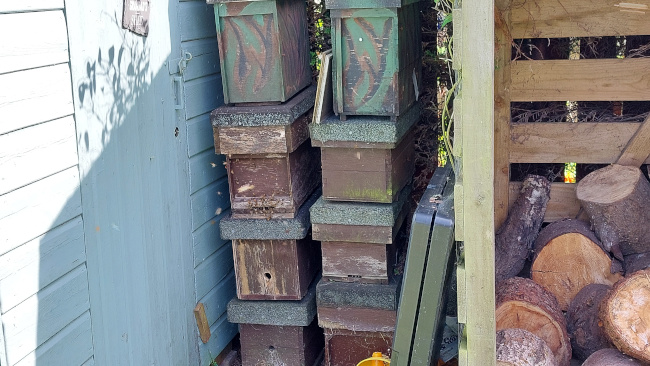There is always something satisfying about observing a busy hive entrance in spring, the first indication of what the likely condition of the colony is inside. The same has to be said for their behaviour as you approach and start to open the hive. If they are leaving you alone, that is a very good sign. If not, be prepared!
This inspection focusses on the colony and nest conditions. Is it queen right, are there signs of health problems and varroa infestation, is there room for the nest to expand, are there enough stores? Lots to check and record for the next visit. Going about the inspection gently and using just enough smoke to keep them calm makes this task an easier job.
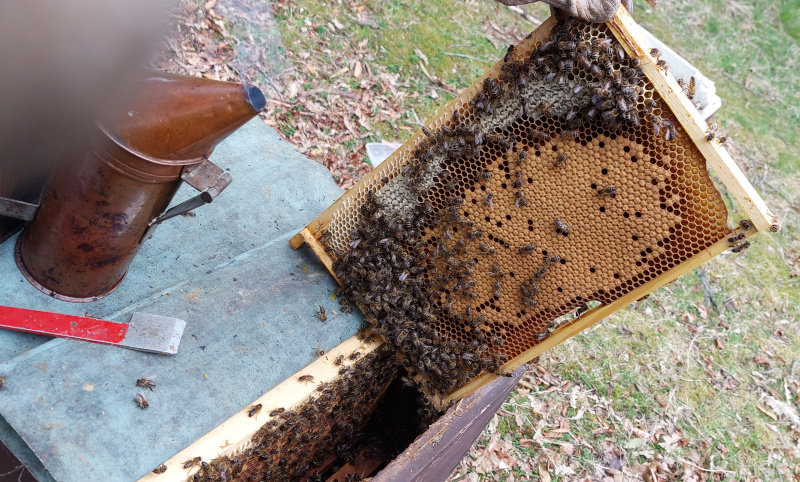
End to end brood, a good start!
With all apiaries checked, only one colony was under par, and by a long way. No queen observed, no eggs, no brood of any description and less than an ideal number of bees. The only positive sign was polished cells, but it's future is doubtful. The same colony had not been the best last season and had a queen that somehow evaded detection and kept laying in the supers as well as the brood nest. The rest of the colonies were a different story. With the exception of one, they were all more or less wall to wall brood, showing that despite the up and down weather, they have been busy, and our visit was timely. With hives now loaded with supers, ekes and feeders removed, and notes of what would be required next visit, it was time for an admiring glance then off home for a well deserved coffee.
